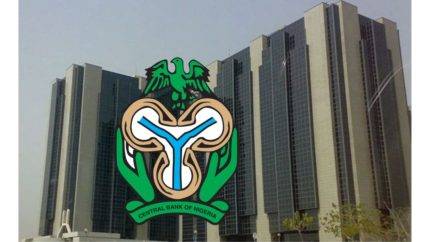The Central Bank of Nigeria (CBN) has officially extended the suspension of cash deposit processing fees, initially set to end on September 30, 2024. The new deadline has been pushed to March 31, 2025, providing an additional six months for individuals and corporate bodies to deposit large sums without incurring extra charges. This extension was communicated through a letter signed by Adetona Adedeji, CBN’s Director of Banking Supervision, and was disseminated to financial institutions across the country.
This policy aims to ease financial burdens for depositors, particularly in a period marked by significant economic reforms. The extension will provide businesses and individuals more time to adjust to evolving banking regulations, ensuring smoother financial operations without the immediate pressure of fees.
Directive Targets Large Deposits Over N500,000 and N3 Million
The extension specifically affects large cash deposits, as outlined by the CBN’s directive. Individual depositors will be exempt from charges when depositing amounts exceeding N500,000, while corporate accounts will not face fees for deposits over N3 million. The directive is part of the CBN’s ongoing strategy to improve liquidity management and simplify banking processes.
The policy adjustment is crucial as it directly impacts Nigeria’s cash-heavy economy, where many businesses and individuals still rely heavily on cash transactions. By halting the charges, the CBN aims to reduce the financial strain on depositors who handle significant cash inflows.
Prior Fee Structure: Two Percent for Individuals, Three Percent for Corporates
Before this recent announcement, the processing fees for cash deposits were set at two percent for individual accounts and three percent for corporate accounts. This meant that for any cash deposit exceeding the specified limits, depositors would incur these charges, effectively reducing the actual amount deposited.
The decision to suspend these fees initially came as part of broader efforts to encourage a cashless economy. However, in light of recent economic challenges and the need for flexibility, the CBN deemed it necessary to extend the suspension, alleviating the immediate financial pressures on depositors.
Rationale Behind the Extension: Easing Economic Pressures
The extension comes at a time when Nigeria’s economy is navigating various challenges, including inflation, currency volatility, and the aftermath of subsidy removals. The CBN believes that extending the deadline will offer relief to both individuals and businesses, preventing additional financial burdens during cash deposit transactions.
This move reflects the CBN’s broader focus on maintaining financial stability, especially as many Nigerians adjust to new economic realities. By halting processing fees, the apex bank is helping to create a more conducive environment for cash flow within the economy.
Impact on Banks and Financial Institutions
While the extension provides relief for depositors, it also poses operational challenges for banks and financial institutions. With the removal of these fees, banks may experience reduced income from processing charges. However, the CBN’s directive emphasizes that the temporary suspension is in the best interest of the overall economy.
Banks and financial institutions are expected to comply fully with this directive, ensuring that their customers can make large cash deposits without facing unnecessary hurdles or extra costs. Compliance will be closely monitored by the CBN to ensure that all financial institutions adhere to the new guidelines.
The Push Towards a Cashless Economy
Though the CBN has temporarily lifted deposit processing fees, it remains committed to its long-term goal of promoting a cashless economy. This extension provides short-term relief but also gives the bank more time to drive initiatives that encourage electronic transactions over cash-based ones. By March 2025, the CBN hopes to have made further strides in enhancing digital banking infrastructure across the nation.
In the coming months, the CBN is likely to introduce additional measures aimed at gradually reducing the reliance on cash transactions. These efforts are expected to modernize the financial landscape and ensure more efficient banking practices across Nigeria.
Table of Contents
Discover more from OGM News NG
Subscribe to get the latest posts sent to your email.














